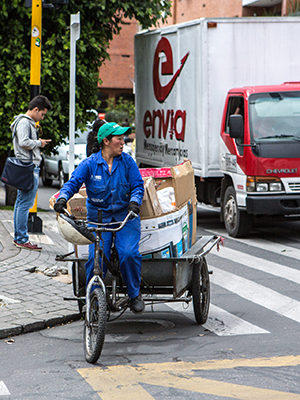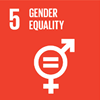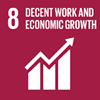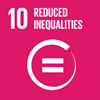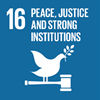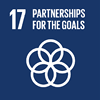Transforming economies, states, and societies
At its core, development is about the well-being of people. But it is also about creating societies which provide fundamental rights and just social political outcomes. Sustainable and inclusive development requires transformative changes across three fundamental areas: in the structures of economies, in the state, and institutions that govern social and market interactions and broader developmental processes, and in society itself. These transformations are central to the achievement of the United Nations’ 2030 Agenda for Sustainable Development and the Sustainable Development Goals (SDGs).
The 2019–23 UNU-WIDER work programme focuses on the interlinked development challenges of transforming economies, states, and societies and maps them against SDGs 5, 8, 10, 16, 17. By mobilizing research evidence for action through the ongoing processes in the UN and its member states, the institute continues to work with stakeholders to strengthen capacities for research, technical, and policy analysis, and facilitate exchange of experiences and knowledge towards bold and collaborative development solutions for countries and regions around the world.
Click on the table below to explore our current work or scroll down to search past projects.
16 active and previous projects
Filter by...
2006-07
Country role models for development successIn the development literature, some countries are cited more often than others as examples of development success. These countries are believed to have policies and institutions that could be transferred, at least in part, to less successful...
2006-07
Southern engines of global growthThe project centers on the inter-linkages between the major developing countries of Brazil, India, China and South Africa and the global economy, with a special emphasis on the implications of China’s growth on smaller economies and the rest of the...
2006-07
Fragility and developmentIn recent years there is a growing concern within the international donor community regarding the plight of a special group of countries labeled as 'Fragile States'. These states, which according to current donor lists currently numbers more than 40...
2006-07
Conference on aid - principles, policies and performanceAid is one of the most challenging development issues facing the international community. There is now a pressing need to evaluate performance to date, and the future for aid in light of recent events such as the post-Monterrey consensus to...
2006-07
Gender and food securityUNU-WIDER’s recent project ‘Hunger and Food Security’ exerted a strong attraction for academia, international organizations (FAO, WFP, and UNCTAD), civil society organizations, and the media. The first project meeting, held in Jaipur in March 2005...
2006-07
Designing Africa's poverty strategies - expanding local capacity to simulate policy optionsIn 2003, UNU-WIDER launched its project on Designing Africa’s Poverty Strategies: Creating the Capacity for Policy Simulation to develop economic modelling capacity in African countries. The project director provided regular training workshops (14...
2006-07
Health inequalities and developmentThe purpose of this project was to investigate issues related to health inequality. Although health is an important indicator of overall wellbeing, it is only recently that research has focused on health inequality. This project brings forth issues...
1998-99
Information technology - growth and employmentIt is a widely held opinion among policy-makers and social scientists that the so-called 'information revolution' is having a substantial impact on the world economy. It is often also presumed that this impact is beneficial to all those countries...
1998-99
New roles and functions for the UN and the Bretton Woods InstitutionsIn a world beset by the effects of the Great Depression and war, the 'Keynesian message' strongly inspired the post-war policy agenda and the structuring of the UN/Bretton Woods system. In contrast, an increasing gap has been emerging between the...
1998-99
EMU and its impact on Europe and the developing countriesThe single European currency, the euro, implies deep changes in the pattern of economic integration in Europe, as well as in the world financial system. These changes will have important consequences on developing countries as well. In Europe, the...
1998-99
Rising income inequality and poverty reduction - are they compatible?Over the last several years, the donor community has increasingly focused its efforts on poverty eradication. Meanwhile, income inequality appears to have been rising in many developed, developing and transitional countries. Economic theory explains...
1998-99
Transition from below - the role of the new private sectorMuch of the discussion about privatization in the former socialist economies has focused on the divesture of state-owned enterprises (SOEs). While this approach has been inspired by the belief that privatization will solve all production and...
1998-99
Underdevelopment, transition & reconstruction (UTR) in SSAThe development prospects in SSA are particularly problematic in those countries which adopted Soviet style planning in the 1970s, i.e. Angola, Congo, Eritrea, Ethiopia, Guinea, Guinea-Bissau, Mozambique, and Somalia. The policies of these countries...
1998-99
Development problems in natural resource-based growth modelsIn the top and bottom ranks of the GDP/c league, one finds countries which are completely devoid of natural resources, as well as others where the natural wealth of the country has played an important role in development. The evidence reviewed in the...
1998-99
Institutions, group behaviour and developmentInstitutions, such as firms, families, contracts, rules, regulations, values, and social norms, are fundamental for economic development. They influence both the level and the pace of economic growth, which can and frequently does trigger...
1998-99
Poverty, income distribution and well-being during the transitionSee publications for work connected to this project.
 Join the network
Join the network